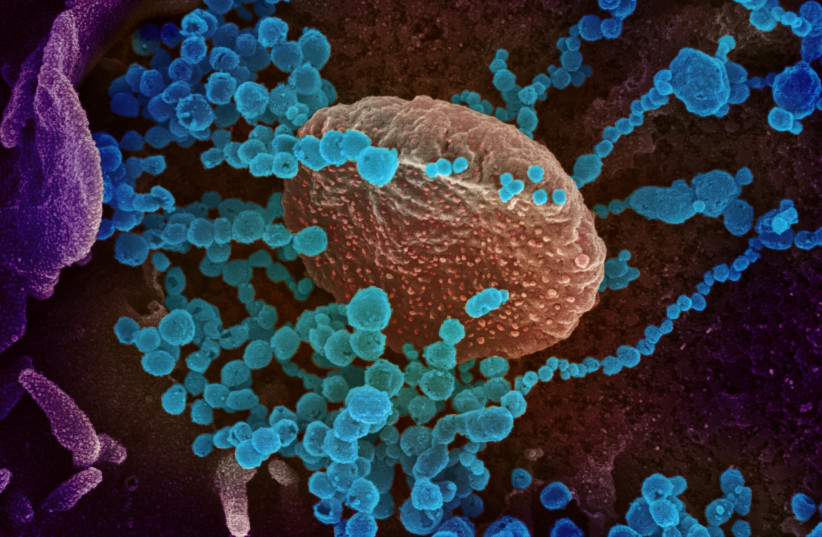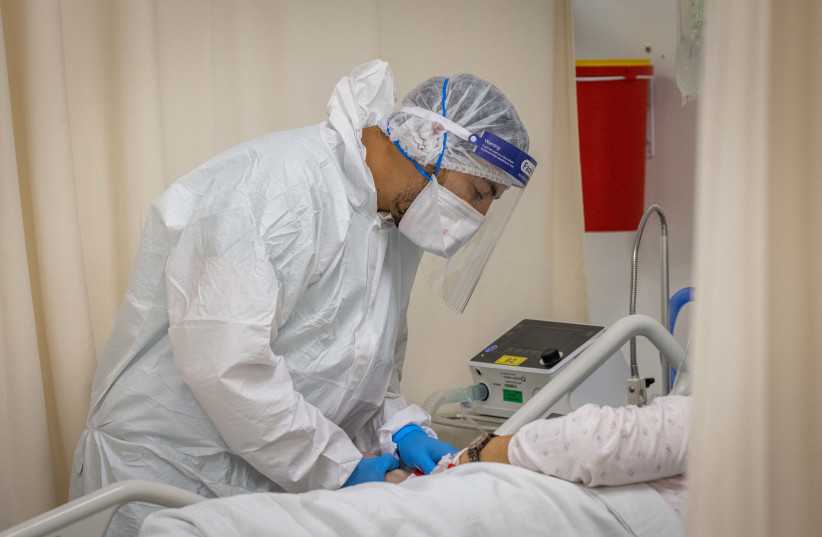COVID may cause 'restless anal syndrome' - report
A patient in Japan seems to have developed the condition due to COVID-19, according to initial findings.

Scanning electron microscope image shows SARS-CoV-2, also known as novel coronavirus
Scientists in Japan have reported a case in which a
patient seems to have developed "restless anal syndrome" after suffering
from COVID-19, with initial findings indicating that the syndrome may
be related to the coronavirus, according to a case report published last week in the BMC Infectious Diseases journal.
The
scientists reported that the patient, age 77, experienced insomnia and
anxiety while infected with the virus and, several weeks after
discharge, began to experience restless, deep anal discomfort.
The
patient experienced an urge to move which worsened with rest and
improved with exercise and worsened in the evening in the anal region. A
colonoscopy revealed internal hemorrhoids.
While it is still unclear how COVID-19 causes neurological symptoms,
a number of cases of neurological issues, including Guillain-Barré
syndrome, "brain fog" and tingling among other issues, have been linked
to coronavirus infections since the start of the pandemic.
Restless
anal syndrome is a variant of restless leg syndrome (RLS), which has
also been linked to a small number of COVID-19 cases. This is the first
case report to link restless anal syndrome to the disease caused by the
novel coronavirus.

Shaare Zedek hospital team members wearing safety gear as they work in
the Coronavirus ward of Shaare Zedek hospital in Jerusalem on September
23, 2021
The
77-year-old patient, categorized as a mild COVID-19 case, was admitted
to Tokyo Medical University Hospital with a sore throat, cough and
low-grade fever and treated for mild pneumonia, insomnia and anxiety.
Although his respiratory function returned to normal 21 days after he
was admitted, insomnia and anxiety remained.
Several
weeks after discharge, he began to experience anal discomfort despite
never experiencing such discomfort before he was affected by COVID-19.
Exercise relieved his symptoms while resting worsened them.
The
scientists diagnosed the patient with restless anal syndrome after
determining that his symptoms matched the criteria and failing to
observe any other cause for the syndrome. No bladder or rectal
disturbance or erectile dysfunction was found in the patient.
Neurological tests found no abnormalities and the patient had no family
history of RLS or periodic limb movements.
The
patient's symptoms were alleviated after being treated every day with
1.5 mg of Clonazepam, a medication used to treat seizure disorders and
panic disorders.
The
scientists stressed that the long-term neuropsychiatric effects of
COVID-19 are not yet fully understood and it is still unclear how the
novel coronavirus causes these effects. They called for long-term
monitoring of such effects in order to gain a fuller understanding of
the mechanisms behind them, adding that COVID-19-related RLS or RLS
variants may be underdiagnosed.
Since the middle of last year,
researchers have found that even some patients who were only mildly
affected by the virus suffered neurological complications ranging from
brain inflammation and delirium to nerve damage and stroke.


